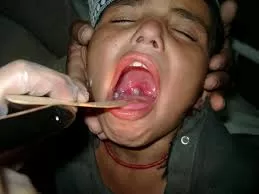New Delhi, Mar 29: A groundbreaking study conducted aboard the International Space Station (ISS) has revealed promising new pathways for repairing heart damage, potentially revolutionizing treatment options for heart disease on Earth.
Researchers from Emory University, driven by observations of rapid cancer cell proliferation and survival mechanisms in microgravity, hypothesized that heart cells might exhibit similar enhanced behavior in space. This innovative concept aimed to address critical challenges in cell-based heart therapies.
The findings, published in the journal Biomaterials, were the culmination of research led by Dr. Chunhui Xu, a professor in the Department of Pediatrics. Her team initially validated their theory using simulated microgravity on Earth before conducting two pivotal spaceflight experiments on the ISS.
The first experiment investigated the differentiation of stem cells into heart muscle cells (cardiomyocytes), while the second focused on their subsequent maturation into tissue-like structures. The results indicated that microgravity significantly improved both the purity and maturity of these heart muscle cells—essential factors for successful cell replacement therapies.
“The space environment provides a unique opportunity to study cells in ways not possible on Earth,” stated Dr. Xu. “Our ISS research could lead to more efficient production of cardiac cells with improved survival rates when transplanted into damaged heart tissue, offering new hope for patients suffering from heart disease.”
The heart, a vital organ responsible for circulating oxygenated blood, possesses limited regenerative capacity once damaged. Scar tissue formation compromises its functionality, often leading to end-stage heart failure. While heart transplantation remains a primary treatment option, the severe shortage of donor hearts leaves countless patients without viable alternatives.
By harnessing the unique insights gained from space research, scientists aim to develop alternative solutions involving the transplantation of lab-grown heart cells into damaged areas. “Not everyone can receive a donor heart, so we must find innovative ways to heal the heart using new cellular therapies,” Dr. Xu explained.
This pioneering research holds the potential to pave the way for more effective regenerative treatments, offering hope for millions of individuals worldwide affected by heart disease.
Disclaimer: This article is based on information available at the time of writing. Further research and clinical trials are necessary to validate these findings and translate them into effective treatments for human patients. The results discussed are preliminary and should not be interpreted as definitive medical advice. Individuals with heart conditions should consult with their healthcare providers for appropriate diagnosis and treatment.(https://www.daijiworld.com/news/newsDisplay?newsID=1276166)












